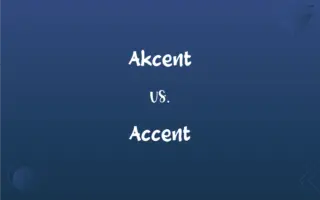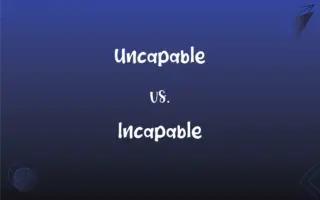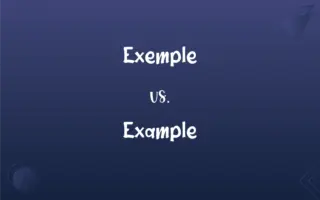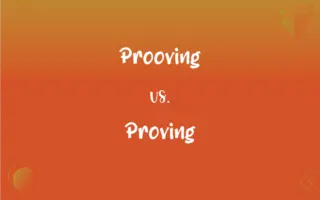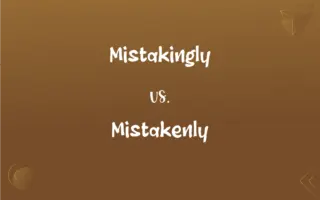Abscent vs. Absent: Mastering the Correct Spelling
Edited by Aimie Carlson || By Janet White || Updated on March 7, 2024
"Abscent" is a misspelling; the correct spelling is "absent," meaning not present in a place, at an occasion, or as part of something.
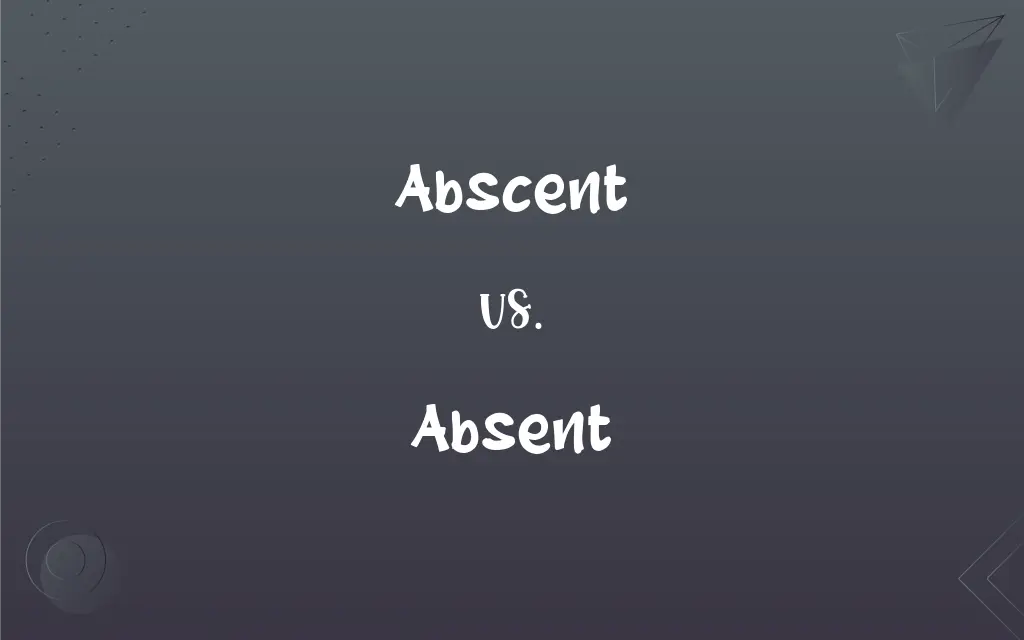
Which is correct: Abscent or Absent
How to spell Absent?

Abscent is Incorrect

Absent is Correct
ADVERTISEMENT
Key Differences
Connect "absent" with "absorbent," noting the similar use of "s" and "b."
Use the mnemonic "Always Be Sure, Every New Thought," taking the first letters to spell "absent."
Think of "absent" as "ab-sent," like "sent away."
Remember "absent" has the same "sent" as in "present," its antonym.
Link "absent" with "absence," noting the shared "s" in both.
ADVERTISEMENT
Correct usage of Absent
The key ingredient is abscent in this recipe.
The key ingredient is absent in this recipe.
There was an abscent look on her face as she stared out the window.
There was an absent look on her face as she stared out the window.
She was abscent from school yesterday due to illness.
She was absent from school yesterday due to illness.
His name is abscent from the list.
His name is absent from the list.
The teacher noticed several students were abscent during the exam.
The teacher noticed several students were absent during the exam.
Absent Definitions
In a legal context, absent means not available or not existing.
Evidence was absent in the case, leading to acquittal.
Absent can describe a lack of attention or awareness.
Her mind was absent during the meeting, lost in thought.
Absent refers to not being in a specific place or at a particular event.
He was absent from school due to illness.
Absent also signifies not possessing a particular quality or feature.
Color is absent in monochrome photographs.
In a social context, absent means not participating or engaging.
Despite being there, he was emotionally absent from the conversation.
Not present; missing
Absent friends.
Absent parents.
Not existent; lacking
A country in which morality is absent.
Absent Sentences
The book I wanted was absent from the library's collection.
The final report was incomplete, with some critical data absent.
She remained absent from work for a week due to flu.
John was absent from class today; he had a doctor's appointment.
The party felt empty with her absent.
They noticed the painting was absent from the wall where it usually hung.
His absent-mindedness made him forget his keys at home.
The absent expression on his face suggested he was lost in thought.
Despite being physically present, he was mentally absent during the meeting.
The absent light of the moon made the night especially dark.
His response was absent when she asked for his opinion.
The trophy case was sadly absent of any new awards this year.
Without her, the team's spirit is absent.
They were absent from the annual family gathering.
The cat was absent from its usual spot on the windowsill.
Their usual warm welcome was absent when we arrived.
Feeling absent from the celebration, she decided to leave early.
The usual anxiety before exams was strangely absent this time.
The scent of flowers was absent from the unscented room.
With the main actor absent the play had to be rescheduled.
The sense of urgency that was expected was absent in his movements.
Her name was conspicuously absent from the guest list.
The teacher marked him absent in the attendance record.
The usual buzz of the city was absent in the early morning hours.
Absent Idioms & Phrases
Absent oneself
To choose not to attend or participate.
She decided to absent herself from the meeting due to a scheduling conflict.
Absent-minded professor
Someone who is smart but forgetful or distracted easily.
He's such an absent-minded professor; he can solve complex equations but forgets his own address.
Absent in body, but present in spirit
Not physically present but feeling emotionally or mentally connected.
Although he couldn't attend the wedding, he was absent in body but present in spirit, sending his best wishes through a heartfelt letter.
Absent without leave (AWOL)
Being away without permission or explanation.
The soldier was charged with being AWOL after he failed to return to his post.
Keep someone absent
To make sure someone stays away.
The team decided to keep their star player absent from early-season games to ensure his injury would fully heal.
Absent friends
A toast people make to remember loved ones who are not present.
Before the meal started, they raised their glasses and said, To absent friends.
Absent from duty (AFD)
Not present at one's place of work without a valid reason.
The report indicated he was absent from duty on several occasions without notice.
Go absent
To leave without permission or notification.
The new recruit went absent during training camp and was later found at home.
FAQs
What is the root word of absent?
The root word of absent is Latin "absens."
Why is it called absent?
It is called "absent" from Latin "absens," meaning "away" or "not present."
What is the plural form of absent?
The plural form is "absents" when used as a verb; no plural as an adjective.
Which conjunction is used with absent?
Conjunctions like "and" or "but" can be used, depending on context.
What is the pronunciation of absent?
Absent is pronounced as /ˈæbsənt/.
Which vowel is used before absent?
The vowel "e" is used before "-nt" in "absent."
Which preposition is used with absent?
"From" is commonly used, as in "absent from school."
What is the verb form of absent?
The verb form of absent is "absent," as in "to absent oneself."
Which article is used with absent?
"The" for specific reference; "an" as it starts with a vowel sound.
Is absent an abstract noun?
No, absent is not an abstract noun.
Is absent a negative or positive word?
Absent is generally considered neutral; context determines its connotation.
Is the absent term a metaphor?
Absent can be used metaphorically in certain contexts.
What is another term for absent?
Another term is "missing" or "unavailable."
Is absent a noun or adjective?
Absent is primarily an adjective, but can be a verb.
What part of speech is absent?
Absent is an adjective and can also be a verb.
What is the first form of absent?
As a verb, the first form is "absent."
What is the singular form of absent?
The singular form is "absent."
Is absent a vowel or consonant?
Absent is a word, not classified as a vowel or consonant.
Is absent a countable noun?
As an adjective, it's not countable. As a verb, it can be counted.
Is the word absent imperative?
As a verb, it can be used in the imperative form.
How many syllables are in absent?
There are two syllables in "absent."
How do we divide absent into syllables?
Absent is divided as: ab-sent.
Which determiner is used with absent?
Determiners like "the," "this," "that," "my," "your," can be used with absent.
Is absent a collective noun?
No, absent is not a collective noun.
What is the second form of absent?
As a verb, the second form is "absented."
Is absent an adverb?
No, absent is not an adverb.
What is a stressed syllable in absent?
The stressed syllable in "absent" is the first one: AB-sent.
What is the opposite of absent?
The opposite of absent is "present."
What is the third form of absent?
As a verb, the third form is "absented."
How is absent used in a sentence?
"He was noticeably absent from the important meeting."
About Author
Written by
Janet WhiteJanet White has been an esteemed writer and blogger for Difference Wiki. Holding a Master's degree in Science and Medical Journalism from the prestigious Boston University, she has consistently demonstrated her expertise and passion for her field. When she's not immersed in her work, Janet relishes her time exercising, delving into a good book, and cherishing moments with friends and family.
Edited by
Aimie CarlsonAimie Carlson, holding a master's degree in English literature, is a fervent English language enthusiast. She lends her writing talents to Difference Wiki, a prominent website that specializes in comparisons, offering readers insightful analyses that both captivate and inform.
